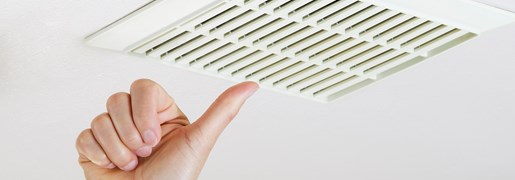Electrical accidents in the home can pose a more significant risk to older or vulnerable people. This is often due to old or poor quality housing that contains faulty electrics and appliances.
Our statistics show that one million people over 75 live in homes that are not warm enough, are in a state of disrepair or do not have modern facilities.
These homes can be dangerous as they don’t meet basic electrical safety standards, and don’t include life-saving devices such as a modern fusebox, circuit breakers and PVC wiring.
Health conditions such as dementia or Parkinson’s can also increase the risk of an electrical accident, as they cause reduced mobility and memory.
If you’re worried about your own property or concerned about a neighbour or relative, here are some simple things that you can do:
- Check the fusebox: Your fusebox controls the electrics in your home which is why it’s important you check it’s working safely. There should be a main switch and fuses and/or circuit breakers. It should NOT have a wooden back, cast iron switches or what looks like a mix of different fuseboxes. If your circuit-breakers trip or fuses regularly blow, get them checked by a registered electrician.
- Check for RCDs: An RCD (Residual Current Device) is a life-saving device in your fusebox that cuts out power if there’s an accident and prevents you receiving an electric shock. To check whether your fusebox has an RCD, press the ‘Test’ or ‘T’ button. If you do have one then pressing it will switch off the power to the areas of the home that it protects. If you don’t have an RCD in your fusebox or it’s not working then you should use plug-in RCDs for all the sockets in your home.
- Plugs and sockets: If your electrics are more than 50 years old they’ll need checking and updating. Electrics can also become damaged or faulty requiring professional attention. Look out for plug sockets with round pins, braided flex hanging from ceiling light fittings, sockets mounted in skirting boards, damaged plugs and sockets, visible burn marks, and crackling sounds or excessive heat being emitted.
- Light fittings: Any signs of overheating such as curled labels, discolouration or scorching should be a warning sign. If you see any signs of cracking or burn marks around the light fittings stop using them immediately and get them checked by a registered electrician.
- Cables: Any extension cords or leads should be in good condition with no signs of damage, cracking or splitting and should be enclosed in a PVC sheath. Cuts, damage or signs of excessive wear and tear mean the lead or plug might need replacing. Avoid trailing cables across the floor or under carpets and rugs as this can be a trip hazard.
- Check the smoke alarm: Every property should have at least one smoke alarm (preferably one on each floor) and batteries should be changed every year. Press the ‘Test’ button regularly to make sure it is working. If you have no smoke alarms, your local Fire and Rescue Service can help.
- Sign up to the priority register: Older people should ask their energy provider to add them to the priority service register which makes them eligible for a tailored billing service, free meter readings, and alternative facilities for cooking and heating if something goes wrong.
- Undertake a full electric check: If the electrics haven’t been fully checked in the past ten years, ask a registered electrician to carry out an Electrical Installation Condition Report (EICR), previously known as a Periodic Inspection Report (PIR).
For more information on safety around the home and electrical items please refer to the following:

Keeping your family and your home safe
Assistive Technology
Assistive technology is an easy way to reduce the risk of electrical accidents in the home. Examples include:
- Safety cut off devices for water, gas and electricity
- Automatic switch off for electric cookers to prevent overheating
- Electrical appliances with simplified controls, designed to be dementia-friendly
Home Electrical Safety Check App
Carrying out various checks around the home can seem like a daunting task. That’s why we’ve have created a Home Electrical Safety Check app that tells you what to look out for in each room of the house. Our app is free to download on your smartphone via Apple and Android stores.
Staying warm:
Heating your home can be expensive, especially in the winter. Portable heaters and electric blankets are affordable solutions providing instant warmth. However, if used incorrectly, they can be extremely dangerous and cause fires.
Click on the links below to see a full guide:
Find out More
You can read more about our campaigning to improve electrical safety standards for older people here.

